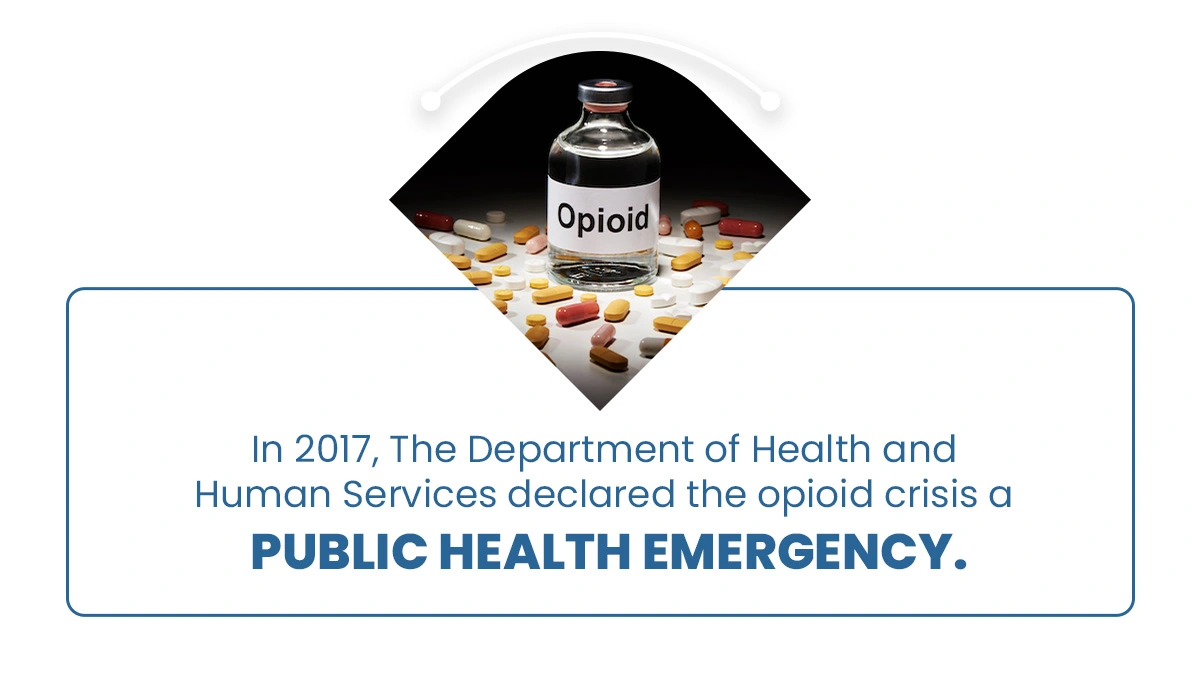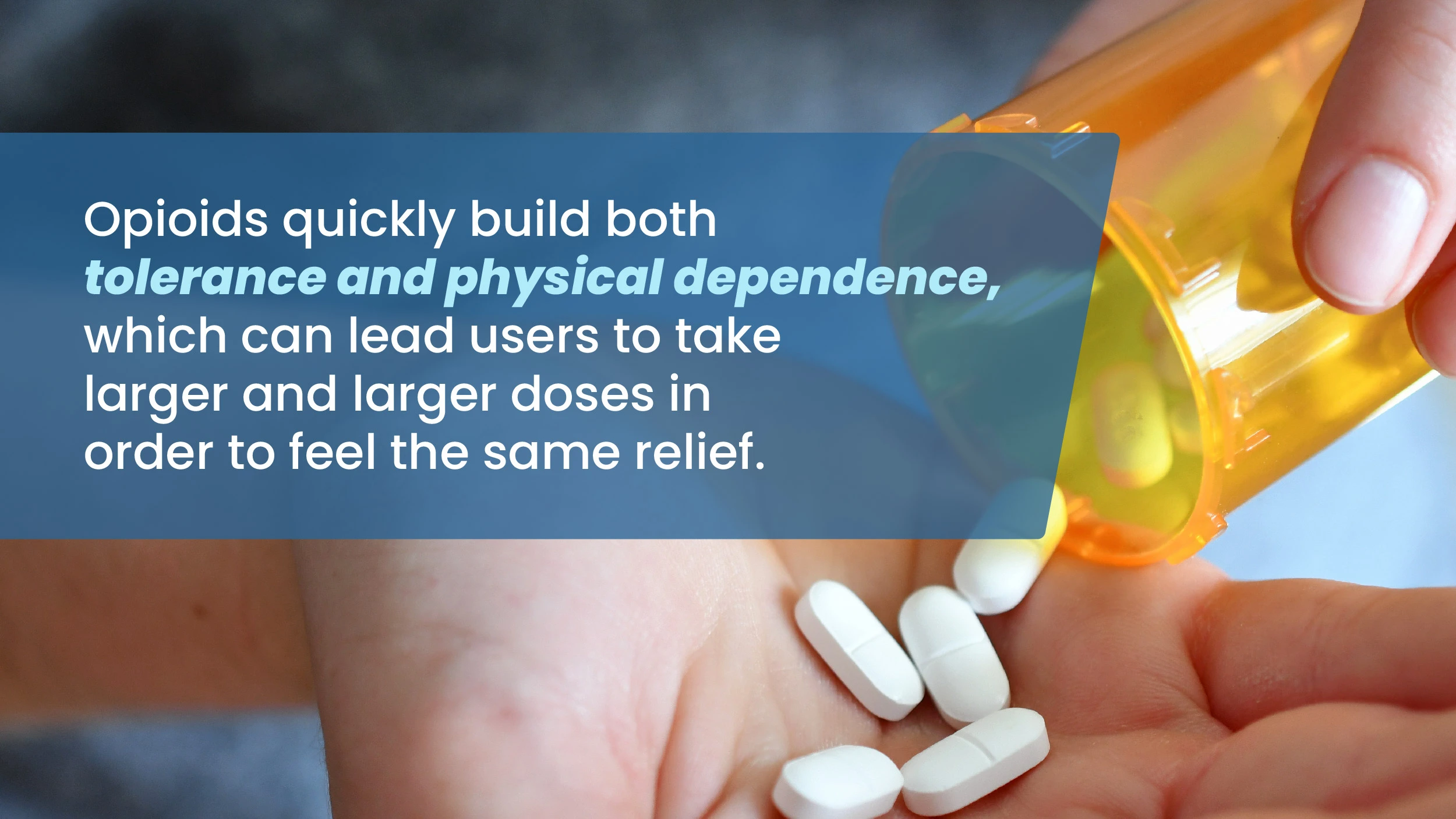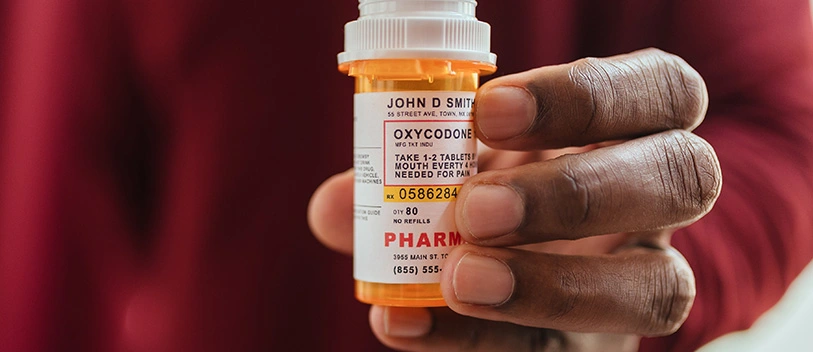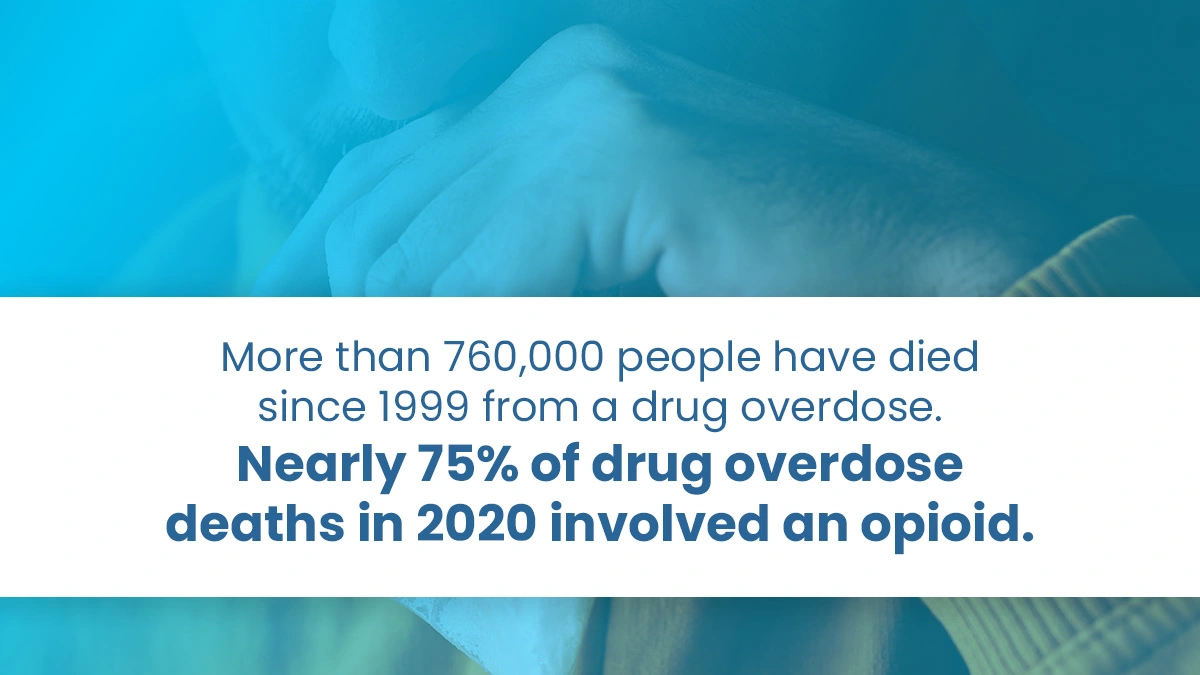Opioid Treatment in Little Rock
Opioid addiction is a big problem in the United States. Every year, millions of people die because of this addiction. Opioid use disorders have strong and potentially harmful effects on the brain. But there is hope to crush the disease.
Little Rock, Arkansas, is a city that has realized the essence of helping people struggling with opioid addiction. They have several medical facilities offering treatment programs to help people get better. These programs use medicine and therapy to help people overcome their habits and live healthy lives.
This article will cover the opioid treatment options at The Haven Detox-Little Rock and how they are helping the community.
Treatment Services
Opioid Treatment in Little Rock offers medication-assisted treatment (MAT). It is a proven approach to treating opioid addiction. It merges FDA-approved drugs with counseling and behavioral therapies.
MAT can reduce cravings and withdrawal symptoms. It can also prevent relapse and improve overall health and well-being.
The program provides treatment plans tailored to each patient’s needs and goals. Patients receive medical care and ongoing support from a versatile team of healthcare experts.
The group includes doctors, nurses, advisors, and peer support experts who work together to provide tender care.
In addition to MAT, addiction services help patients address recovery’s physical, emotional, and social aspects. These services include:
Counseling: Patients receive individual and group counseling to address the issues that lead to addiction, such as trauma, stress, and mental health disorders.
Case Management: Patients receive healthcare, housing, and employment aid to support their recovery.
Peer Support: Patients receive motivation and tips from people who have experienced addiction and are trying to recover.
These services can help you overcome opioid addiction.
The Haven Detox-Little Rock is here to help patients earn long-term recovery and regain control of their lives. If you know someone fighting opioid addiction, let us help them beat the addiction.

Key Takeaways
Opioids have strong and potentially harmful effects on the brain. But there is hope to crush the disease.
- MAT is a proven approach for treating opioid addiction.
- People who use opioids for an extended period may develop dependence and addiction.
- Family history is a risk factor for opioid addiction.
- Sharing needles to inject opioids can lead to growing diseases like HIV and hepatitis.
- Medical detox is often the first step in treating opioid addiction.
The Haven Detox-Little Rock is here to provide the best way to beat opioid addiction. Call us at (501) 271-3342 and start rebuilding your addiction-free life.
Symptoms of Opioid Addiction
Opioid addiction can be challenging to recognize, as the signs can vary from person to person. Some common symptoms of opioid addiction include:
- Taking opioids in massive amounts or for more extended periods than intended
- Failed attempts to cut down or stop using opioids
- Putting a lot of effort into obtaining, using, or recuperating from opioids
- Cravings for opioids
- Neglecting duties, such as work, school, or family duties
- Continuing to use opioids despite harmful effects, such as legal or financial issues
- Growing tolerance, which means needing more opioids to achieve the same effects
- Experiencing withdrawal symptoms when not using opioids, such as nausea, vomiting, diarrhea, muscle aches, and insomnia
When to Seek Treatment…
It’s vital to seek treatment for opioid addiction as soon as possible to prevent the condition from worsening. Consider seeking treatment if:
- You’re unable to cut down or stop using opioids on your own
- You’re sharing adverse effects, such as legal issues or relationship problems
- You’re experiencing withdrawal symptoms when not using opioids
- You’re using opioids to cope with emotional or physical pain
- Your opioid use is meddling with your daily life, work, or relationships
If a Loved One Needs Help…
If you believe somebody is struggling with opioid addiction, offering support and motivating them to seek treatment is vital.
Here are some tips to help a loved one with opioid addiction:
- Express your concern in a supportive way.
- Offer to help them find treatment options.
- Motivate them to talk to their healthcare provider about their opioid use.
- Help them create a relaxed atmosphere by removing any opioids from home.
- Offer to attend counseling sessions with them or to participate in family therapy.
Remember, opioid addiction is a chronic medical condition that needs thorough treatment.

Causes
Genetic, environmental, and social factors can cause opioid addiction. Some common causes of opioid addiction include:
Chronic Pain: People use opioids as a prescription to treat chronic pain. People who use opioids for an extended period may develop dependence and addiction.
Social Environment: People who are exposed to drugs and alcohol at a young age or who have friends or family members who use drugs may be more likely to use opioids.
Mental Health Disorders: People with mental health issues, such as depression or anxiety, may use opioids to self-medicate and cope with their symptoms.
A family history of addiction is a risk factor for opioid addiction. Genetics plays a role in the growth of drug dependence. People with a family history of addiction may be more likely to develop it themselves.
If you have a history of addiction, be mindful of your opioid use and seek treatment if you’re sharing any symptoms of addiction.
Opioids have a high potential for addiction due to their ability to produce feelings of euphoria and pleasure. Opioids bind to specific brain and spinal cord receptors, reducing pain and building a sense of well-being.
Over time, the brain may adapt to opioids, needing higher doses to earn the same effects. It can lead to physical dependence and addiction.

Risk Factors
Opioids are powerful painkillers that can cause addiction, dependence, and overdose. Opioid addiction can affect anyone, but certain factors can increase a person’s risk of developing an addiction:
- Mental health issues, such as depression or anxiety.
- History of substance abuse or addiction.
- Chronic pain or medical conditions needing long-term opioid use.
- Family history of addiction.
It’s important to be aware of these risk factors and to reduce your risk of developing opioid addiction.
Some common risk factors for opioid addiction include:
Easy access to opioids can increase a person’s risk of addiction. Opioids are highly addictive, and people with access to prescription opioids, such as painkillers, may be at an increased risk of developing an addiction.
Illegal opioids, such as heroin, can also be easily accessible and lead to addiction.
Peer pressure can be a significant risk factor for opioid addiction. When people feel pressured by their peers to engage in drug use, they may be more likely to experiment with opioids.
As the person becomes dependent on the drug, they continue to use it to fit in with their social group, creating a cycle of dependence. Peer pressure can make it more difficult for people to seek help for their addiction, as they may fear judgment or rejection from their peers.
People with friends or family members who use opioids may be more likely to abuse opioids themselves. Pressure to fit in or to alleviate stress and anxiety can also lead to opioid use.
Lack of supervision can also increase a person’s risk of developing opioid addiction. Adolescents and young adults who lack parental control or guidance may be more likely to experiment with opioids.
People with trauma or stress may also use opioids as a coping mechanism.

Effects
Opioid addiction can significantly impact an individual’s life, affecting their safety, relationships, employment, and health.
Opioid addiction can have severe effects on a person’s health and well-being. Some short-term effects of opioid use include drowsiness, constipation, and slowed breathing.
Long-term use can lead to physical dependence, which means the body needs the drug to function normally. It can cause withdrawal symptoms if the drug is suddenly stopped.
Opioid addiction can also have social and emotional effects. It can cause relationship issues, lead to financial difficulties, and interfere with work or school. Addiction can also cause mood changes and affect a person’s ability to think clearly.
If you know somebody struggling with opioid addiction, seeking help from a healthcare expert is crucial.
Opioid addiction can impair a person’s judgment and reaction time. It can lead to an increased risk of accidents and injuries.
People who use opioids may be more likely to be in risky behaviors, such as driving under the influence or unsafe sexual practices, which can further raise their risk of harm.
Sharing needles to inject opioids can lead to growing diseases like HIV and hepatitis.
In addition, opioid abuse can add to the ongoing opioid epidemic. It has led to a massive gain in overdose deaths.
Opioid addiction can strain relationships with friends, family members, and romantic partners. People who use opioids may struggle to maintain healthy relationships. Their addiction may lead to conflicts and trust issues.
Relationships may be further strained by the stigma covering addiction. It can cause people to feel isolated and ashamed.
Opioid addiction can have awful effects that cause strained contact, trust issues, and emotional distance. People may prioritize drug use over their loved ones. It leads to neglect and irritation.
Family and friends may also share financial strain or become addiction enablers. The Haven Detox-Little Rock can aid in rebuilding healthy relationships.
Opioid addiction can also impact a person’s ability to maintain employment. People who use opioids may struggle to keep up with consistent work.
An opioid addiction may lead to truancy, reduced productivity, and conflicts with coworkers or supervisors. Legal issues related to opioid use, such as arrests or convictions, can also impact a person’s ability to find or maintain a career.
Opioid addiction can mainly impact a person’s physical and mental health. Chronic opioid use can lead to various health issues, including respiratory depression, heart problems, and liver damage.
People who use opioids may also be at an increased risk of developing infectious diseases, such as HIV or hepatitis C, if they engage in risky behaviors like sharing needles.
Mental health disorders, which include anxiety, depression, and suicidal ideation, may also be worsened by opioid addiction.
In addition to these adverse effects, people who struggle with opioid addiction may also share social stigma and prejudice, making it more difficult to access treatment and support.
However, it’s crucial to recall that opioid addiction is a treatable condition, and recovery is possible with the right aids and support.

-
Related Pages
- From Ingestion to Detection: Opioid Stay Times in Your Body
- Guarding Against Opioid Addiction: Prevention Tips
- How Narcan Works: A Life-Saving Medication
- Medications for Opioid Withdrawal
- Opioid Addiction: The Role of Medication-Assisted Treatment
- Relief to Crisis: Effects of Opioids
- Signs of Opioid Addiction: Clues in the Dark
- Silent Killers: Dangers of Synthetic Opioids
- Teens And Opioids: Vulnerability And Risks
- The Challenges of Long-Term Opioid Use
- Understanding Opiates: A Comprehensive Guide
Get Help
If you’re suffering from opioid addiction, getting help as early as possible is essential. Opioid addiction is a severe illness that can lead to many problems. Getting help as early as possible can significantly improve your chances of recovery. Call us to get started with treatment.
Our resources are available to help you overcome your addiction with evidence-based therapies and innovative treatments proven by medical science to effectively manage your addiction. Our admissions counselors can help you learn more about the disease and how to keep it out of your life. Contact us confidentially today.

Treatment
Strong medications known as opioids have a history of addiction, dependence, and overdose. Opioid addiction is a treatable condition if a person gets professional help.
In the United States, several evidence-based treatments are available for opioid addiction. Medication-assisted treatment (MAT) is one of them.
MAT involves using drugs such as methadone, buprenorphine, or naltrexone. These drugs can help control withdrawal symptoms and reduce cravings.
MAT is often mixed with behavioral therapies such as cognitive behavioral therapy (CBT) or motivational interviewing (MI) to address psychological factors that lead to addiction.
In addition, support groups and 12-step programs such as Narcotics Anonymous (NA) can provide support and society for people in recovery.
It is vital to seek help from a healthcare provider or addiction expert to pick the best treatment for each person’s needs.
Medical Detox
Medical detox is often the first step in treating opioid addiction. During this process, medical experts monitor patients as they withdraw from opioids.
It is a process that helps people addicted to opioids withdraw from the drug safely. Opioid addiction is a severe problem that can lead to many health hardships and even death.
Healthcare experts can help manage withdrawal signs during medical detox. They ensure that the person stays safe and comfortable. We can also use medicines to ease symptoms and reduce cravings.
The duration of medical detox can vary, depending on the person and the severity of the addiction. It is a crucial first step in recovery and can help people crush opioid addiction and lead healthier lives.
Drugs may help manage withdrawal symptoms. People may receive medical care, such as counseling and behavioral therapy.


Residential Treatment Program
Residential treatment programs provide intensive, round-the-clock care for people struggling with opioid addiction. These programs usually offer various therapeutic services.
The services are as follows:
- Individual counseling
- Group therapy
- Behavioral therapy
People undergoing residential therapy live away from their homes in a facility. The qualified staff can watch and honor them to recover their sober life.
It can be helpful for people who have toiled with addiction for an extended period or have a history of relapse.
Dual Diagnosis Treatment
Many people with opioid addiction also face co-occurring mental health conditions, such as depression, anxiety, or post-traumatic stress disorder.
It addresses addiction and mental health issues, focusing on integrated, personalized care.


Additional Therapy
In addition to traditional therapies, adjunct therapies can help treat opioid addiction.
Therapies for specific residents, such as veterans and first responders, may also be available.
If you’re facing opioid addiction, seek help at The Haven Detox-Little Rock as soon as possible.
Overcome Addiction With The Haven Detox-Little Rock
We understand that opioid addiction is a complex and challenging condition. Still, you can fulfill your life and begin your journey to recovery.
If a loved one you know is facing opioid addiction, The Haven Detox-Little Rock can help. Our facility is dedicated to effective treatment for those seeking recovery from addiction.
At The Haven Detox-Little Rock, we use evidence-based treatment plans that have been proven effective in treating opioid addiction.
Don’t let opioid addiction control your life any longer. Call us today to learn more about our treatment options and take the first step towards a healthier, happier life.
Call us at (501) 271-3342 or visit our website to schedule a consultation.



